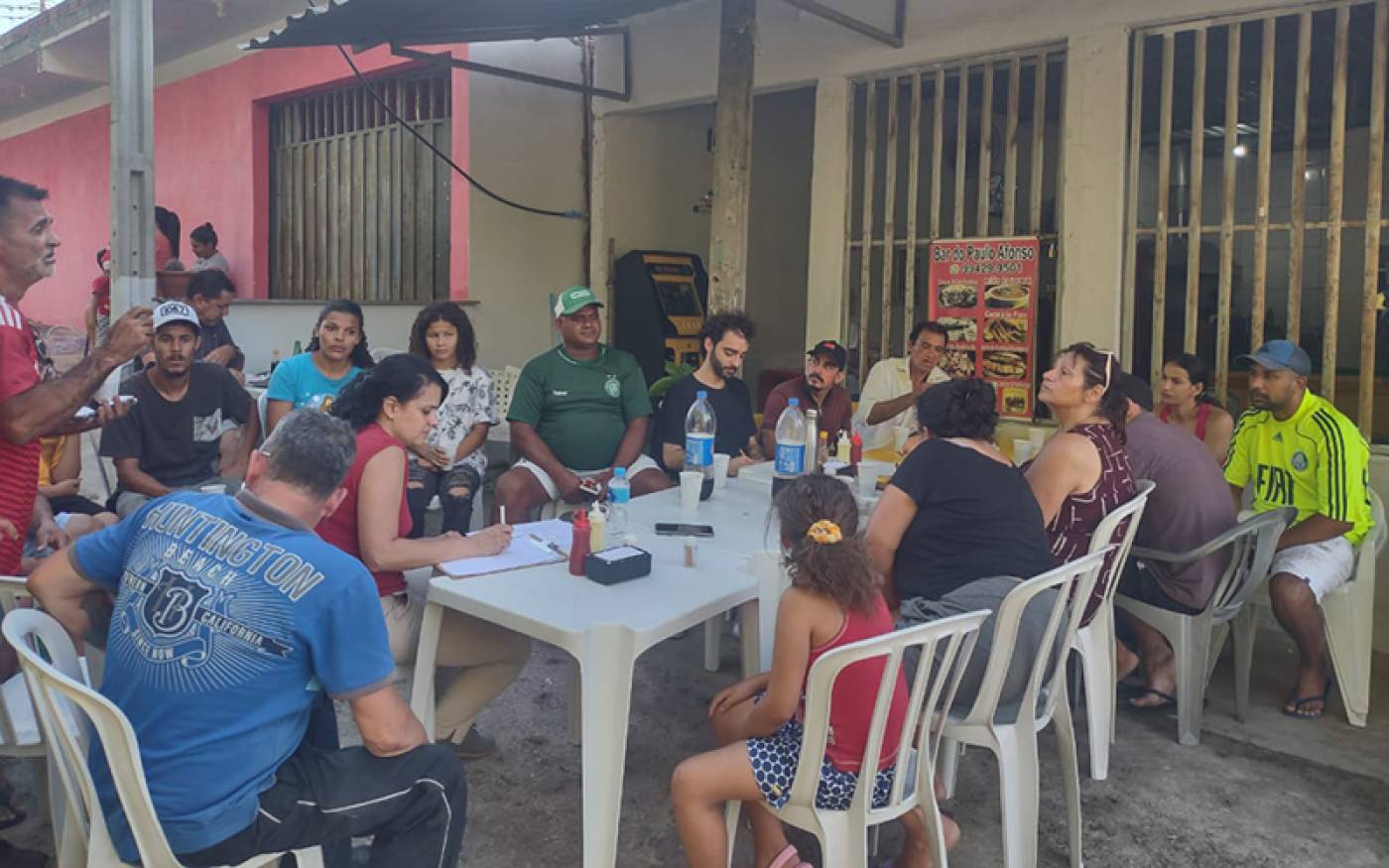In collaboration with Fundaçao Escola de Sociologia e Política de São Paulo (FESPSP)







As part of the 2022 DPU Summerlab Special Research Fellowship series, Lourenço Capriglione (MSc ESD alumnus) was a research fellow in a participatory research exploring linkages between sanitation and the Sustainable Development Goals (SDGs) in Brazil. The research was led by Dr Pascale Hofmann (DPU) in collaboration with Dr Tathiana Chicarino and Dr Elcires Pimenta from Fundação Escola de Sociologia e Política de São Paulo (FESPSP), one of DPU’s partner organisations. The research focused on a context-specific examination of synergies and risks between sanitation and the SGDs in the municipality of Campinas in the state of Sao Paulo with particular emphasis on informal settlements, given their disproportionate vulnerability to sanitation inadequacies. The research engaged with representatives from the public utility company and the municipality and further involved fieldwork in one of the municipality‘s informal settlements.
The research builds on an important series of work by a multidisciplinary UCL team examining links between sanitation and the SDGs at global, national and local level. Findings from the research in Campinas highlight synergies between sanitation and multiple SDG targets. They further point out that utility efforts must be combined with multi-sectoral, participatory and context-specific policies, plans and interventions to overcome interconnected risks and harness the far-reaching benefits of sanitation. The team produced a policy brief entitled "Sanitation in informal settlements: integrated local action towards meeting the Sustainable Development Goals (SDGs) in Campinas" with key recommendations. The document is available in English and Portuguese. The policy brief will be officially launched in Sao Paulo in August this year through a hybrid event organised by FESPSP.
From Lourenço's perspective, coming back to his home country for the DPU Summerlab was at the same time an exciting and challenging experience. "I always took for granted the water on my tap and a toilet in the house, without putting a lot of thought into where it was coming from or where it was going. Although I was in my home county, I was immersed in a different context and geography. During the process, I carefully reflected on the ethical implications of our work, which included not creating expectations about short-term sanitation improvements for the residents involved. The research team was always open to innovative ideas and collaboration, and I have learned a lot from each of them. I am convinced that our research and policy brief will leverage positive changes in the community. Both the municipality and utility company were very open for the project and confident with the relevance of its results."
Policy Briefs
About Lourenço
Lourenço Capriglione is an environmental communicator and researcher from the Northeast of Brazil. With a background in advertising, he has been working on projects related to socio-environmental justice and the Sustainable Development Goals (SDGs). In the past, he worked with grassroots climate movements, created a collaborative platform to promote SDG-related events in Rio de Janeiro (Urbio) and led an Instagram blog about climate issues (Politiclima). His main interests include political ecology, environmental public policy, participatory planning, climate justice and climate adaptation, with a focus on Latin America.
In 2021/22 he studied the MSc Environment and Sustainable Development at DPU with support from the UK Government’s Chevening Scholarship programme. He was awarded a DPU dissertation fellowship linked to the research project Grassroots Insights into Urban Risk and Resilience, led by the International Institute for Environment and Development in collaboration with the DPU and the Tanzanian Centre for Community Initiatives. His dissertation focused on Climate Justice Through the Perspective of Informal Settlements: a case study of Dar es Salaam. In his words, "The dissertation fellowship and the collaboration with a DPU-led research project on sanitation (entitled OVERDUE) within one of the MSc modules that led to the development of an advocacy campaign for sanitation justice, deepened my interest in everyday risks experienced by the urban poor in informal settlements in the global South. These experiences definitely encouraged me to apply for DPU’s Summerlab fellowship in Brazil".
 Close
Close

